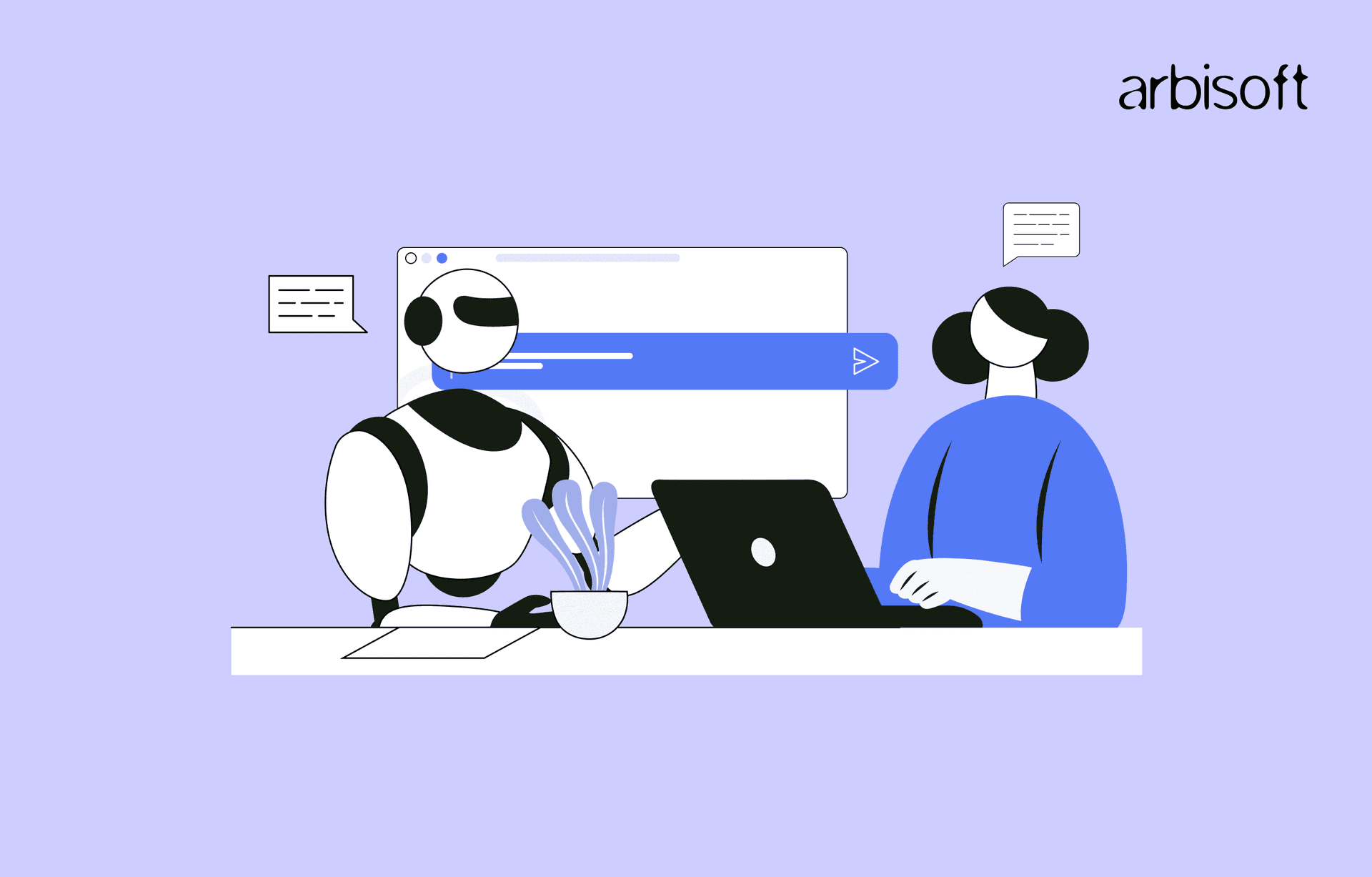We put excellence, value and quality above all - and it shows




A Technology Partnership That Goes Beyond Code

“Arbisoft has been my most trusted technology partner for now over 15 years. Arbisoft has very unique methods of recruiting and training, and the results demonstrate that. They have great teams, great positive attitudes and great communication.”
SearchGPT - Leveraging RLHF for Improved Search Relevance

Imagine a world where AI can transform search engine technology to truly understand you, eliminating the need to sift through pages of irrelevant results. OpenAI's new prototype, SearchGPT, might just make that dream a reality!
In a bold move challenging the giants of search engines, OpenAI has unveiled SearchGPT, an AI-powered search engine designed to provide quick, accurate answers to your prompts sourced directly from the web, raising questions about the evolution of SEO. This innovative solution - still a prototype, aims to tackle the growing issue of AI-generated noise and spam online, which has rendered traditional search engines less effective.
With SearchGPT, users can expect a more intuitive and personalized search experience. This search engine promises to understand the intent behind your queries, delivering precisely what you need without the clutter. As AI continues to shape the digital landscape, OpenAI's pioneering effort could not only pave the way for a new era of intelligent, user-friendly search, but could also complement the advancements seen in ai and data science services that drive innovative data insights.
But how does SearchGPT achieve this level of precision? The answer lies in Reinforcement Learning from Human Feedback (RLHF).
The Role of RLHF
Reinforcement Learning from Human Feedback (RLHF) combined with advanced machine learning to enhance online search, is the secret sauce behind SearchGPT's ability to deliver highly relevant search results. By incorporating human judgment into the training process, SearchGPT learns to prioritize information that aligns with user needs and expectations. This iterative process allows the model to continuously improve its understanding of user queries and deliver more accurate results over time.
Essentially, RLHF teaches SearchGPT what constitutes a "good" search result by providing rewards for desirable outcomes and penalties for undesirable ones. This feedback loop ensures that the search engine is constantly evolving to meet the changing needs of its users.
How RLHF Improves Search Relevance
RLHF is the driving force behind SearchGPT's ability to deliver highly relevant search results.
- Learning from User Behavior - SearchGPT analyzes user interactions, such as clicks, dwell time, and bounce rates, to understand which results are most valuable. This data is used to refine search algorithms and prioritize relevant information in future searches.
- Human-in-the-Loop Refinement - Human experts play a crucial role in evaluating search results and providing feedback on their quality. This feedback helps SearchGPT to better understand user intent and expectations, leading to more accurate and relevant search results.
- Prioritizing Relevant Information - By combining insights from user behavior and human experts, SearchGPT can effectively prioritize relevant information and suppress irrelevant results. This results in a cleaner and more focused search experience.
- Personalized Search - RLHF empowers SearchGPT to tailor search results to individual users based on their search history, preferences, and behavior. This personalized approach enhances user satisfaction and increases the likelihood of finding relevant information.
Do existing Search Engines make use of RLHF too? And how do they compare to SearchGPT in that respect?
With AI search engines becoming a norm, it is natural to be curious about whether existing search engines make use of advanced AI techniques too.

Want to know whether search engines are using RLHF and how?
Download now!

Integrating RLHF in Search Engine - SearchGPT
SearchGPT offers several advantages over other search engines.
- Intuitive Search - By understanding natural language, SearchGPT makes it easier for users to find information without complex search queries.
- Personalized Experience - Leveraging RLHF, SearchGPT delivers tailored search results based on individual user preferences and behavior.
- Time-Saving - SearchGPT often provides direct answers to queries, eliminating the need to sift through multiple web pages.
- Improved Accuracy - SearchGPT's ability to understand context and intent results in more relevant and accurate search results.
- Enhanced User Experience - The combination of these factors creates a smoother, more efficient, and satisfying search experience overall.
Challenges and Limitations
While SearchGPT holds immense promise, it also faces several challenges and limitations:
- Data Quality - The quality and diversity of the data used to train the underlying language model significantly impact SearchGPT's performance. Biased or inaccurate data can lead to biased or misleading search results.
- Computational Resources - Training and operating large language models require substantial computational power and resources, which can be a barrier to entry for many organizations.
- Adaptability - Keeping up with rapidly evolving search trends and user behaviors in real time is a constant challenge.
- Misinformation - SearchGPT, like any search engine, must contend with the spread of misinformation and disinformation online.
- Bias - The human feedback incorporated into RLHF can inadvertently introduce biases into the search results if not carefully managed.
- Privacy Concerns - Collecting and storing user data for RLHF raises important privacy considerations that must be addressed.
With similar challenges down the road, how is SearchGPT claiming to be better than the other LLMs in the row?
SearchGPT vs. Bard vs. GPT-4
While SearchGPT and other LLMs share similar foundational technologies, SearchGPT's unique focus on search and its integration with RLHF differentiate it.

Potential Advantages of SearchGPT
- A deeper understanding of search queries and user intent.
- Prioritizes delivering highly relevant search results.
- Benefits from a constant stream of user feedback through RLHF.
However, it's important to note
- SearchGPT is still under development. Its full capabilities and advantages may still need to be fully realized.
- With appropriate fine-tuning, other LLMs could potentially compete with SearchGPT.
In The End
SearchGPT represents a significant leap forward in search technology. By harnessing the power of AI and incorporating human feedback, it has the potential to revolutionize how we find and consume information. While challenges remain, the benefits of a more intuitive, accurate, and personalized search experience are undeniable.
As SearchGPT continues to evolve, it's crucial to prioritize ethical considerations, data privacy, and ongoing research to ensure that this technology benefits society as a whole.
The future of search is bright, and SearchGPT is at the forefront of this exciting development.
























